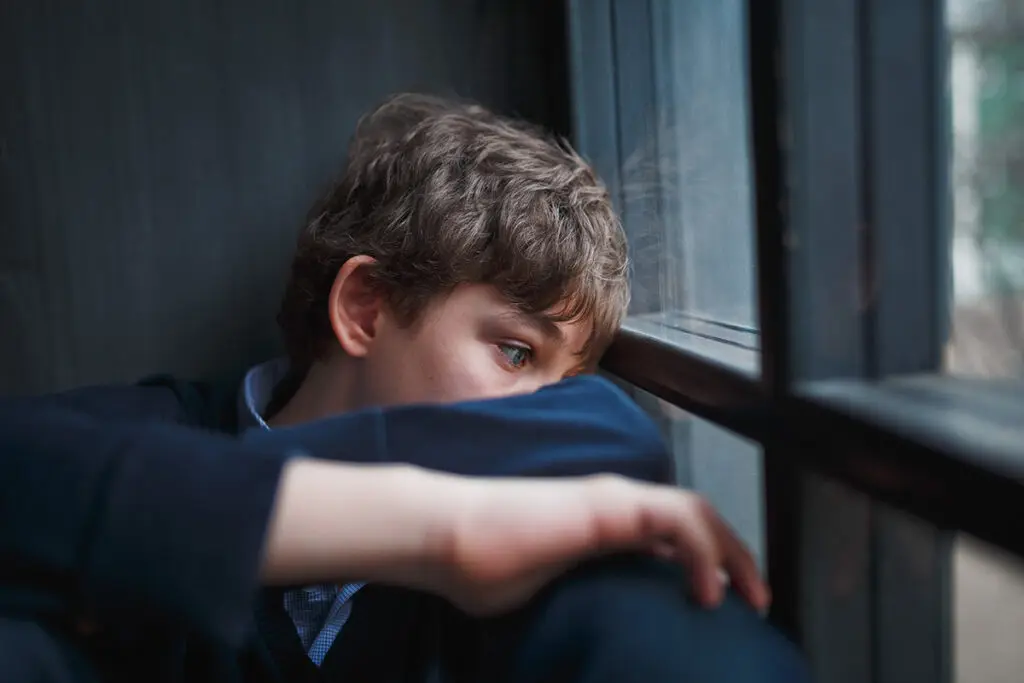Parenting a teenager can be challenging, especially when your teen seems to be struggling in ways you don’t fully understand. Sometimes, their struggles may stem from unresolved trauma—experiences from their past that continue to affect them now. Whether it’s a single traumatic event or ongoing stress, unresolved trauma can significantly impact your teen’s emotional well-being, behaviors, and even their future. Understanding what’s going on beneath the surface is key to providing help and guiding them toward healing. Our trauma treatment for teens is here to help.
Teens and Unresolved Trauma
Unresolved trauma refers to the lingering effects of a distressing experience that hasn’t been fully processed or addressed. For teens, this can include events such as bullying, losing a loved one, exposure to violence, accidents, abuse, neglect, or even chaotic family environments. While some teenagers may seem to “bounce back” after difficult experiences, others carry the weight of unresolved trauma for years.
The teenage years are a critical time for emotional and physical development. When trauma goes unaddressed, it can interfere with your teen’s ability to trust, connect, and grow into their full potential. Often, unresolved trauma isn’t immediately obvious—it may surface as changes in mood, withdrawal from friends and family, or “acting out” behaviors that mask the pain they’re feeling inside.
Trauma Response Behaviors
Teens often show different trauma response behaviors, depending on their unique personality, experience, and coping mechanisms. Here are some key behaviors to watch for:
- Avoidance – Your teen might avoid anything that reminds them of a traumatic event. This could include skipping school, avoiding certain people or places, or downplaying their feelings.
- Hyperawareness or hypervigilance – They may appear “on edge” or anxious, reacting strongly to everyday situations. This heightened state of alertness is their brain’s way of trying to stay safe.
- Mood swings – Unprocessed emotions from trauma can cause irritability, anger outbursts, or periods of deep sadness that seem disproportionate to the situation at hand.
- Self-destructive behaviors – Risk-taking, substance use, or impulsive actions can sometimes be an attempt to distract from emotional pain.
- Withdrawal – Your teen might seem distant or uninterested in relationships, struggling to open up or trust others.
Recognizing these behaviors as potential trauma responses rather than deliberate defiance or dramatic teenage behavior is an important step in providing support.
Effects of Trauma on the Brain
The effects of trauma on the brain are profound, especially during the adolescence stage, when the brain is still developing. Trauma disrupts normal brain function by keeping the body in a prolonged state of “fight or flight.” Over time, this heightened stress response can physically alter brain structures.
Amygdala
Trauma can over-activate the amygdala, the part of the brain responsible for fear and emotional regulation. This results in heightened emotional responses and difficulty controlling anxiety or anger.
Prefrontal Cortex
This area of the brain, responsible for decision-making and rational thinking, may function less effectively under the stress of unresolved trauma. Your teen might struggle with impulse control, focus, or making sound decisions.
Hippocampus
Trauma can shrink the hippocampus, which processes memories. This can make it harder for your teen to distinguish past trauma from present situations, causing them to re-experience distress.
These neurological effects are reversible with proper help and support, but they highlight the importance of addressing unresolved trauma early.
How Unresolved Trauma Can Impact Your Teen’s Future
Without intervention, unresolved childhood trauma can carry over into adulthood, shaping your teen’s future in ways they may not fully understand.
Emotional Well-Being
Teens who don’t process trauma may be more likely to develop mental health challenges, such as anxiety, depression, or PTSD. These conditions can make it harder to maintain healthy relationships and pursue personal goals.
Academic or Career Barriers
Trauma responses like difficulty concentrating, low self-esteem, or lack of motivation can spill into schoolwork and later career opportunities. Unresolved emotions can make achieving potential feel out of reach for your teen.
Strained Relationships
Because trauma often interferes with trust and emotional regulation, unresolved issues can lead to difficulties in forming close bonds. Teens may struggle to build and sustain friendships, intimate relationships, or family ties.
Physical Health Risks
Studies link long-term unresolved trauma with physical health challenges later in life, including chronic conditions like heart disease, diabetes, and a weakened immune system. Emotional stress takes a toll on the body over time.
Addressing trauma early helps teens build resilience, develop healthy emotional coping skills, and set them on a positive trajectory toward the future they deserve.
Call MCAW Today
Unresolved trauma doesn’t have to define your teen’s life. The first step toward healing begins with recognizing the signs and seeking the right support. At MCAW, we specialize in guiding teens and their families through understanding and processing trauma. Our compassionate approach incorporates personalized counseling and proven strategies to help your teen regain control, build resilience, and thrive.
If you’re concerned about how unresolved trauma might be affecting your teen, don’t wait to get help. Contact MCAW online today to learn how we can support your family on the path to healing and growth. Your teen’s brighter tomorrow starts with action today.




